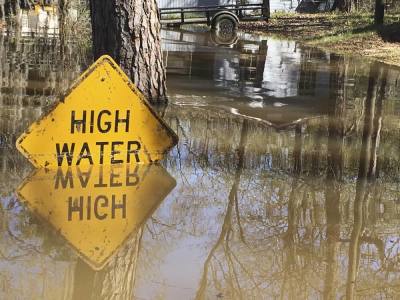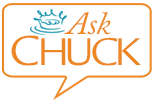Dear Chuck,
I have family members who suffered financially after Hurricane Helene. How do you suggest I prepare if affected by a hurricane or other natural disaster in the future?
Disaster Ready

Dear Disaster Ready,
The Atlantic hurricane season is expected to pick up in the coming days. This year’s season runs from June 1 to November 30. But beyond the hurricane season, many live in areas vulnerable to fires, tornadoes, flash flooding, hail, ice, blizzards, earthquakes, and more. While we cannot prevent a natural disaster, we can prepare our financial affairs to be ready should disaster strike.
Start with insurance coverage
Bankrate’s 2024 Extreme Weather Survey revealed that 26% of U.S. homeowners are unprepared for the potential costs associated with extreme weather events in their area. Hurricanes can cause flooding and spawn tornadoes, which many inland homeowners experienced last year. Check to see if your insurance covers wind damage.
Flood insurance is usually sold as a separate policy and may have a 10–30 day waiting period before coverage begins. Research your options if you do not have a policy in place. Wind and hail damage are usually covered under a home insurance policy. Know your deductibles so you are prepared financially should a disaster strike.
Renters may need to consider flood insurance as well. The cost of coverage will vary based on flood zones, age of dwelling, construction, coverage limits, and deductible level. Unfortunately, insurance costs are rising due to the increase in storms and resulting claims.
Have some cash
An emergency fund that is always ready for immediate needs is essential. It is basically a form of insurance for sudden setbacks, like a natural disaster that may disrupt your income. It will prevent additional stress if money is needed to evacuate, find temporary housing, make repairs, or shop for essentials.
Begin by opening an account that you absolutely will not touch unless a true emergency arises. Save $1,000 as quickly as possible into an FDIC-insured account with some liquidity, like a money market or high-yield savings account. Set up automatic deposits so you will not spend the money. Deposit financial gifts, credit card rewards, raises, bonuses, or tax refunds when possible. Go through your bank and credit card statements to see where you can cut expenses and divert that money toward your emergency fund until you establish a three-to-six-month cushion. If you must withdraw money, aim to replenish it ASAP. Set a goal; then challenge yourself with spending fasts, like a no-eating-out month, a no-entertainment-expense month, etc. Find friends to do this with you; some friendly competition or accountability may help you build it faster! Crown’s 13 Ways to Save for Your Emergency Fund may be helpful.
Here is a comprehensive checklist of ways to help you prepare for a natural disaster, as well as some other helpful articles:
Remember God’s example of the ant
“Go to the ant, O sluggard; consider her ways and be wise. Without having any chief, officer, or ruler, she prepares her bread in summer and gathers her food in harvest” (Proverbs 6:6–8 ESV).
Although ants are tiny creatures with very tiny brains, God wants us to learn from them. In fact, He says their behavior of storing food during the good times to be ready for the bad times is wise. The next time you see an ant, remember the Lord wants us all to be as wise. Don’t procrastinate; be ready.
Do you want more tools and tips on financial stewardship? Are you interested in receiving ministry updates from around the world? Sign up to receive the Crown Newsletter emails by using the form on the homepage at Crown.org.
Chuck Bentley is CEO of Crown Financial Ministries, a global Christian ministry, founded by the late Larry Burkett. He is the host of a daily radio broadcast, My MoneyLife, featured on more than 1,000 Christian Music and Talk stations in the U.S., and author of his most recent book, Economic Evidence for God?. Be sure to follow Crown on Facebook.













